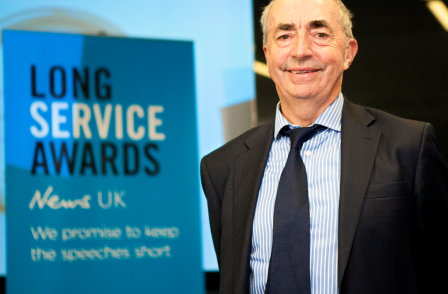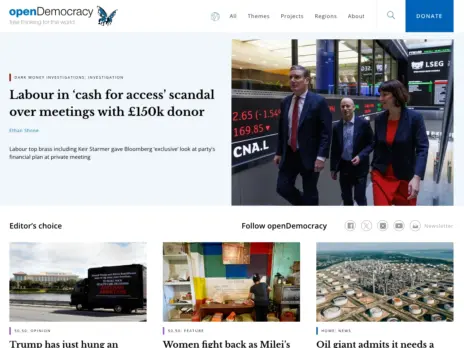
Times journalist Philip Webster said this week that the core skills he learned on one of the first courses run by the National Council for the Training of Journalists have seen him through a 40-year career on the paper.
The digital editions editor and deputy head of news was honoured at a News UK ceremony on Friday which recognised 150 long servers across the company who had between them clocked up 3,100 years of employment. Sun associate editor Trevor Kavanagh marked 35 years with the Murdoch-owned publisher.
Webster, who spent 37 years covering politics before moving to his current largely online role three years ago, says he owes his survival and success to the values and skills he learned at the start of his career on one of the first year-long NCTJ training courses run by Harlow College in 1968.
He says: “The importance of impartiality, fairness and accuracy was drummed into me and it’s stuck with me throughout.
“As a political journalist you can’t have favourites. I was one of the few political journalists who was very close in contact terms to both the Blair camp and the Brown camp throughout that long war between them from 1994 to 2006.”
Webster remembered first considering a career in journalism whilst at school and being told he should consider The Times: “At that point it seemed a total dream.”
He started off with the Eastern Daily Press, who paid for his training, and got his national break three years later after being introduced to the head of The Times parliamentary staff.
A shorthand speed of 180 words per minute was enough to get him a trial shift reporting on Parliament (this was when recording of the House of Commons was still banned).
He says: “The Times had a massive parliamentary staff covering both Houses almost like a secondary Hansard. I was thrown into the press gallery in a debate between Harold Wilson and Ted Heath. I came out and could read enough of my notes and got a job the same afternoon.”
After starting as a press gallery reporter, he joined the Lobby as a political reporter in 1981, became chief political correspondent in 1986 and then was political editor from 1992 to 2010.
He says: “When I joined the Lobby it was still shrouded in secrecy. We weren’t even allowed to admit the existence of Number 10 briefings.”
He recalled that Leader of the House John Biffen was once famously described in a Lobby briefing as being a “semi-detached” member of the Thatcher Government.
“We said it was according to a source close to the Prime Minister, but it was of course her spokesman Bernard Ingham.
“There was a real sense of mystery about it that served the interests of the journalists themselves as well as the government.”
Philips said he welcomed the change to a more open system in 1997, when quotes from Lobby briefings became attributable to a “Downing Street spokesman”.
He said the highlights of his 37 years covering politics were the downfalls of Prime Ministers Margaret Thatcher and Tony Blair.
“Covering the intrigue surrounding both was an absolute joy for a political reporter. Both were slain by their own side after winning three elections – the parallels were astonishing.”
Talking about his career since 2010 working on the digital side of journalism, he said: “It’s been terrifically exciting in my sixties to be thrown into a completely new career.”
Since his arrival as Times digital editions editor The Times and Sunday Times have together attracted some 153,000 digital-only subscribers out of 355,000 subscribers in total.
Email pged@pressgazette.co.uk to point out mistakes, provide story tips or send in a letter for publication on our "Letters Page" blog






